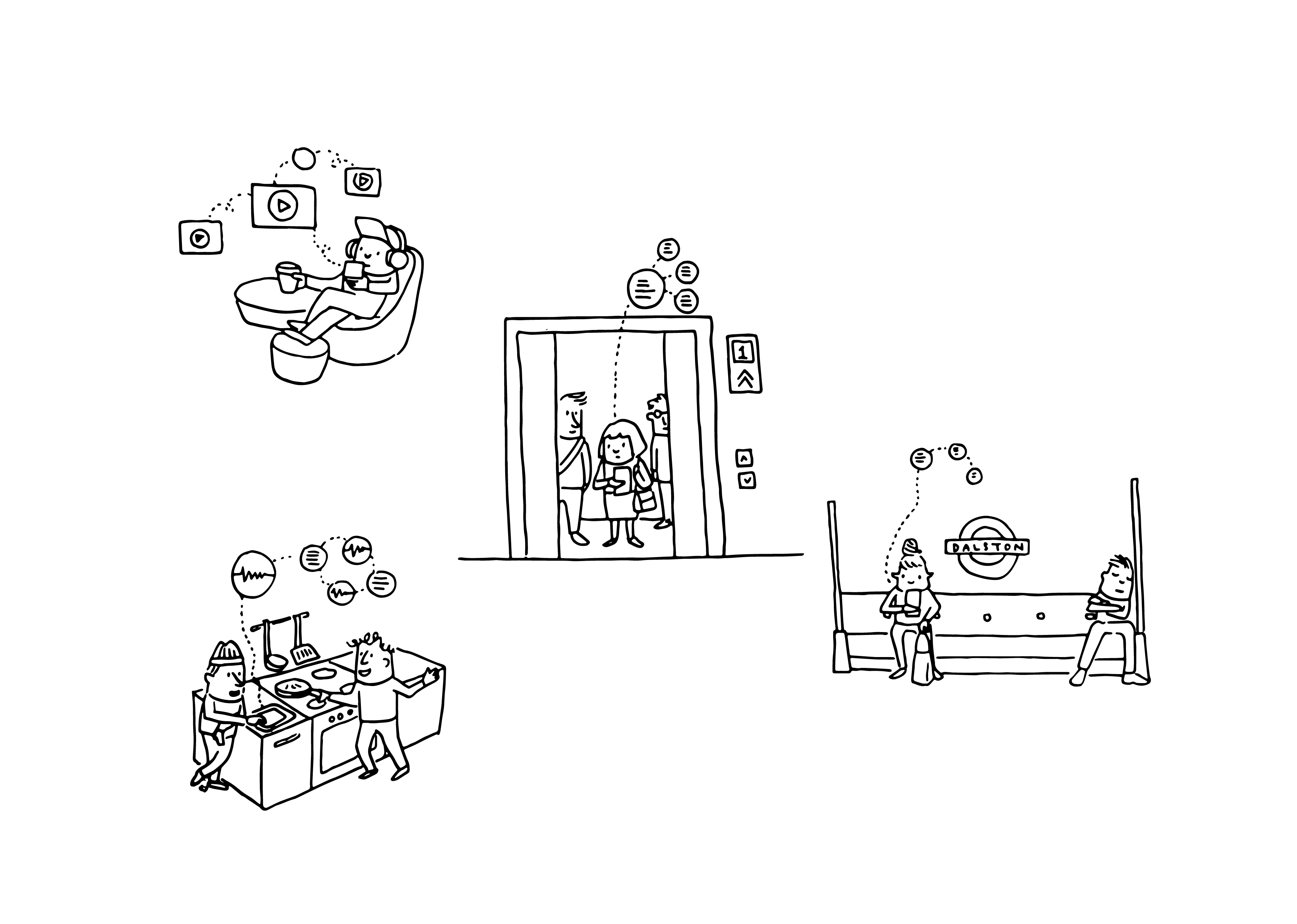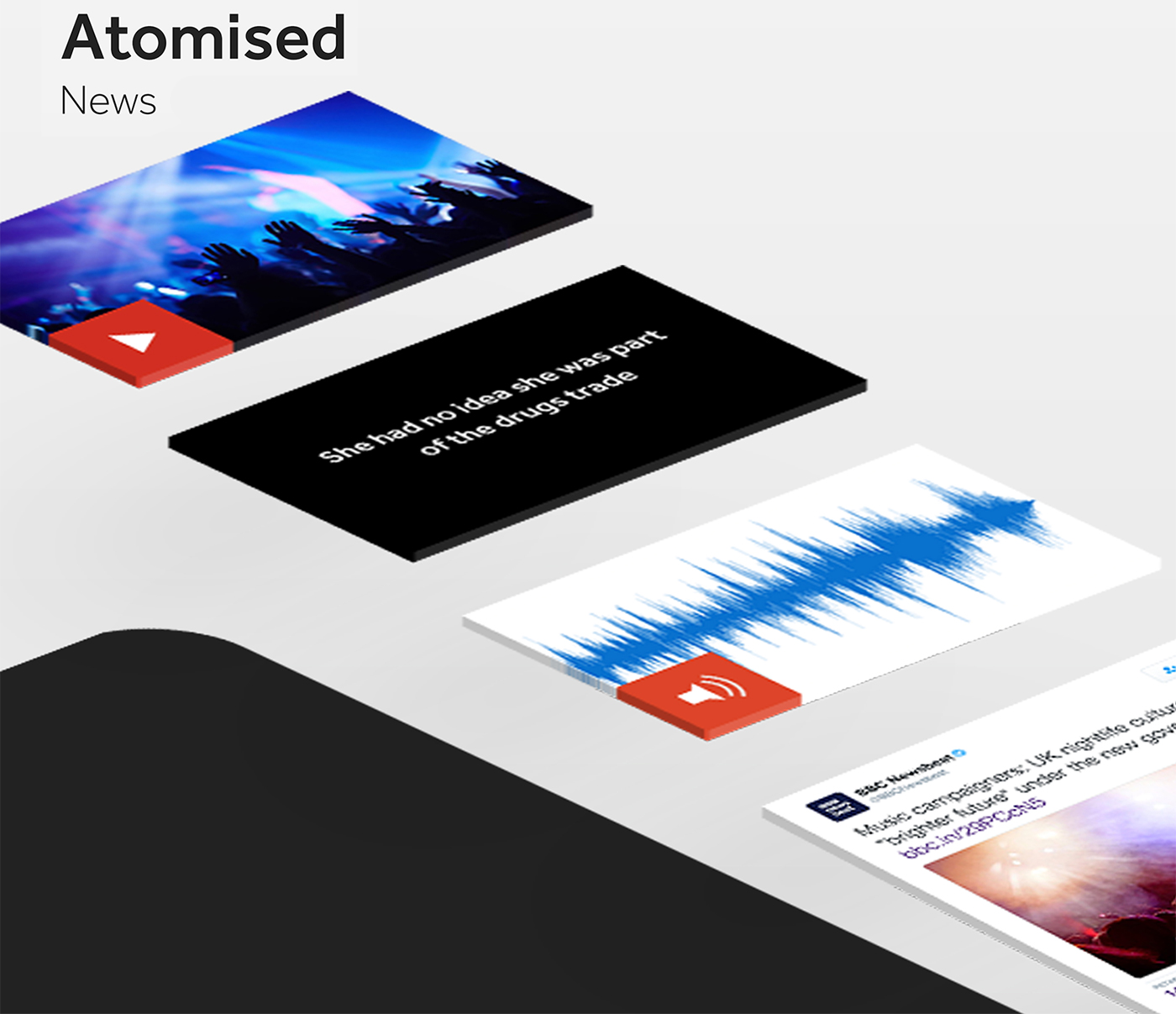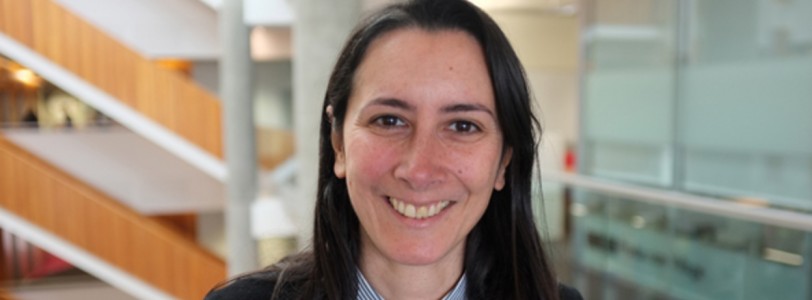Could you introduce yourself to the readers?
My name is Barbara Zambrini and, in case you are wondering, I am Italian and I do like my coffee – and buying weird coffee makers. I lived in London longer than I did in Turin so London is what I call home.
What is your current job title, and what does it involve?
I am a Senior Producer at BBC Research & Development where I work with a team of brilliant engineers, UX designers and researchers. I identify opportunities for creating new content experiences addressing production issues or improving our audience reach and engagement. I set the scope of the project or problem area but then I trust the team to come up with interesting propositions. We tend to tackle a problem area as a team – not top-down approach but rather contributing from different angles (editorial, ux, engineers…).
What was your career path? Is there anything you do differently if you could go back?
I studied Computer Science and Multimedia technology at a time when only few people knew what Flash was - it feels like a long time ago now. I became Associate Lecturer at London Metropolitan University where I taught BSc and MSc students interaction design, front-end development, video production, 3D modelling and game design. I then moved into managing large-scale multiplatform projects for a while before becoming part of the funding team of a start-up. Our initial focus was on creating innovative serious games. Subsequently, we expanded our remit onto animation and TV production. This kind of sums up my career in the digital world, prior to joining the BBC 6 years ago.
A constant denominator in my career has been the passion I have for weaving innovation into all products I've created – getting people excited about new experiences. I've always approached work from a UX perspective rather than a technical challenge and I would not change it if I were to do it again. Addressing at the start of a project why you are doing it, what’s going to be the benefit to your audience and what problem you are trying to solve is always going to have the biggest impact.
What is the best thing about your job?
I have the privilege of working with a fantastic team where everybody takes the audience needs at heart and loves trying new ways of creating innovative concepts. We must have tried dozens of concepts ideation and prototyping techniques by now and we want to do more!
The best part is finding new ways of 'selling' the dream to stakeholders - get them enthusiastic about doing things differently or trying different things.
What do you find most challenging?
It isn't always easy striking that delicate balance between imagining the future and being helpful to the rest of the business in the short and medium term.
What has been the highlight of your career to date?
I would lie if I say I am not proud of having six Bafta nominations for projects I've created in the start-up prior to my BBC days. It is a testament to the hard work of a small team with limited budgets and that's why they are even more precious. But working at BBC re-imagining the future of content delivery and consumption has to be up there too in terms of highlights!
The BBC R&D department is constantly on the lookout for technologies that will simplify or improve access to the news. What are some technologies you believe are going to play a significant role in news discovery and curation in the future?
At R&D we believe news need to become more adaptive to the individual – allow our audience to consume the stories in the format that makes more sense to them in a specific context. A major strand of our work is looking at creating the tools for journalists for creating stories made of 'objects' or 'atoms' – we call it object-based media (OBM). This will allow for the creation of non-linear narratives. Our work on Atomised News looked at ways those objects can be reassembled to give different levels of details about a story in a snappy format – keeping in line with current media consumption patterns on social platforms. A story can expose the 'atoms' that give a quick overview of the key events while each of them is linked to other atoms that give more in-depth information about certain aspects. You can then skim and dig on the bits that matter the most to you.
But also imagine how a story's objects can be reassembled to deliver a narrative while you are rushing to catch the tube, for instance. You have your headphones plugged in your mobile but have less than 2 minutes to spare. That story could be then delivered to you as a 1 minute audio summary – why should you get a video of that shooting when you are obviously in a rush? Or you could surface pictures and text objects for those events rather than audio and video if there's low bandwidth /no Internet connection and maybe no headphones?
These are some of the scenarios that adaptive, context-driven content can better address your needs in the future by creating stories tagged at a more granular level. We need more and richer metadata – this is a fact and there are so many talented people tackling this issue from different angles.
Can you explain some of the ways the BBC are trying to combat the growing concern of fake news?
I consider fake news a bit like weeds – they spread fast, ruin all the great work you've done in your garden and overshadow the proper plants you have. We must find ways to get rid of them! But in the meantime, we can improve our fact checking by using tools to help us speed up that process and have our voice heard first. Our research shows audiences look at the BBC as their source of truthful news stories – they rely on us for fact checking. We also need to give more credit to our audiences – they know where to turn to find the truth.
Looking back, what has been the biggest challenge you've overcome?
Working in the digital industry there are so many challenges – the fast pace at which things are evolving and the advances in technology are sometimes mind-blowing! It is not easy to keep ahead of the curve creating innovative products or features. It is important to keep a close eye to our audiences - their needs and expectations – and act fast!
What advice would you give to 16-year old Barbara?
Oh, I was a wild teenager. I'd say 'have less tequila!' I'd tell her not to be afraid to be curious and geeky! I grew up in Italy where computers and making games were 'not for girls'. I am glad things have changed! Nowadays, a 16 years old Barbara would feel more empowered to follow her dreams. It took me a bit longer.
What would you suggest to young people who want to take a similar career path?
Do it! Think of digital media not in silos – they are all bleeding and blending nowadays. You can move among broadcasting, gaming, and education combining them all into an exciting journey. Try to get an overarching knowledge of content and software creation – learn about UX as well as coding but most importantly, learn how to understand your target audience.
Find out more job profiles over on Creative Choices, a website that is filled with advice for getting a career in the arts.










Your post discusses the potential of offering transcription services for video content, helping content creators reach a wider audience by providing accurate captions. It's a specialized service with money-making potential. For more insights, click here.